On the afternoon of June 13, the National Assembly discussed in the hall the draft Resolution of the National Assembly amending and supplementing a number of articles of the 2013 Constitution, with many opinions paying attention to the content of administrative units.
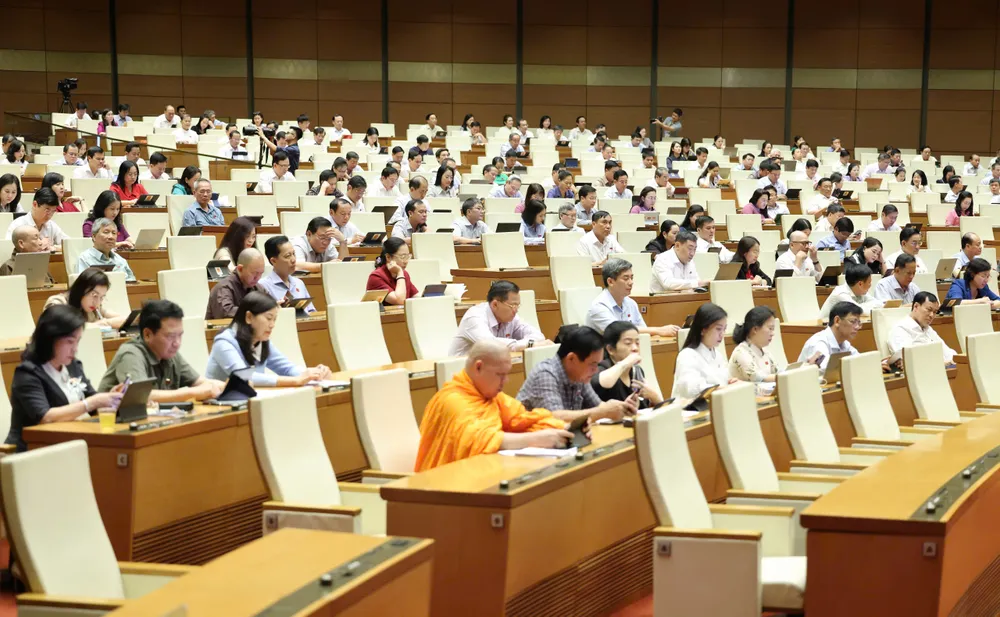
The draft resolution has been accepted and revised in the direction of stipulating that administrative units of the Socialist Republic of Vietnam are organized into two levels, including provinces and centrally run cities and administrative units below provinces and centrally run cities as prescribed by law.
The draft also states that "local authorities in special administrative- economic units are prescribed by the National Assembly when establishing such special administrative-economic units."
Discussing at the meeting hall, National Assembly deputies assessed that the amendment and supplement to the 2013 Constitution this time has a very important historical significance, when implementing the organization of a two-level local government, contributing to expanding the development space of localities, streamlining the effective operating apparatus, bringing the government, the Fatherland Front, and organizations closer to the people, and effectively solving the work of the people and businesses.
Many opinions highly appreciated the drafting committee for absorbing and revising the draft with good quality, including retaining the right of People's Council delegates to question the Chief Justice of the People's Court and the Chief Prosecutor of the People's Procuracy as in the current Constitution.
According to Deputy Mai Van Hai ( Thanh Hoa ), administrative units are a topic of interest to many deputies, voters and people. The draft affirms the 2-level local government model.
Deputy Mai Van Hai said that the phrase administrative units below the province should still be carefully considered to avoid different understandings of administrative units below the province. The Deputy suggested that it is appropriate to specify the administrative units of the Socialist Republic of Vietnam as provinces, centrally-run cities, and communes and wards of special zones.
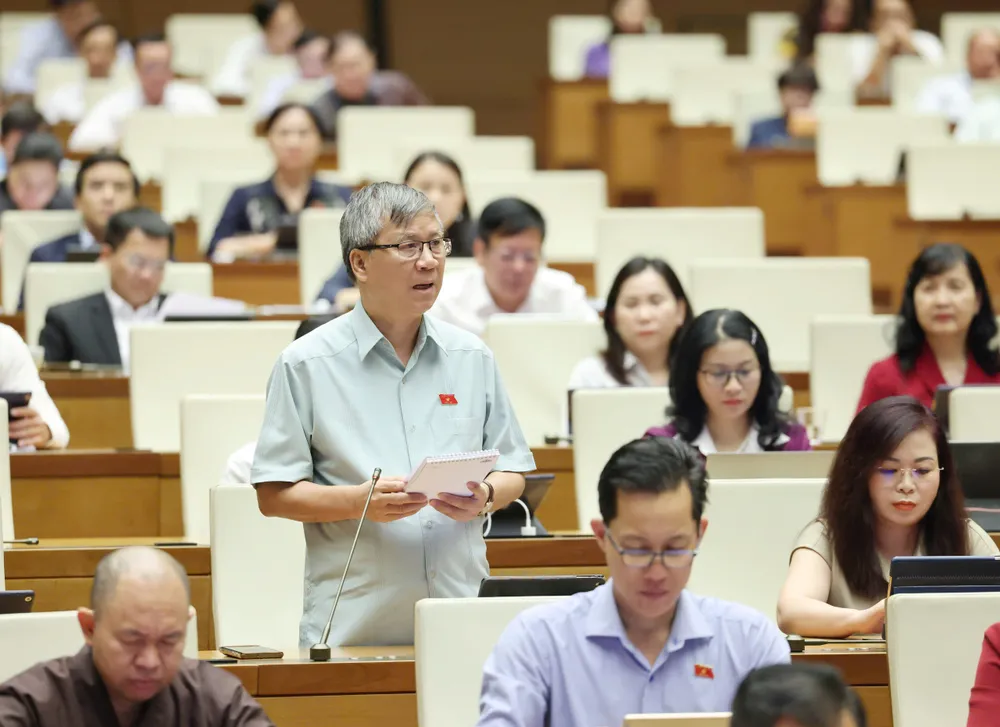
Delegate Nguyen Anh Tri (Hanoi) said that the draft regulation is very reasonable. This regulation will create a wider space, so that if there are more reasonable adjustments in the future, there will be no obstacles and no need to amend the Constitution.
The delegate added that the general trend globally as well as in our country is the strong urbanization process. Besides the old cities such as Vinh, Nam Dinh, Nha Trang, Da Lat, many new cities have appeared such as Dong Hoi, Hoa Binh, Hai Duong... enriching the provinces and cities, making the country more beautiful. The urbanization process is and will continue, so the regulations as in the draft are far-sighted.
Delegate Ha Sy Dong (Quang Tri) said that when socio-political organizations are directly under the Vietnam Fatherland Front, the specific names of socio-political organizations should not be mentioned in the Constitution.
Because the Constitution is a legal document with principles and fundamental values, specifically listing political and social organizations can easily lead to inadequacies when implementing the requirements for innovation in political organizations, organizing the political system, or creating new political and social organizations that the Constitution cannot adjust in time.
Specifying 5 socio-political organizations under the Vietnam Fatherland Front invisibly frames the political system, creating a legal barrier for the birth and development of socio-organizations, which is not suitable for the requirements of expanding socialist democracy in the new era.
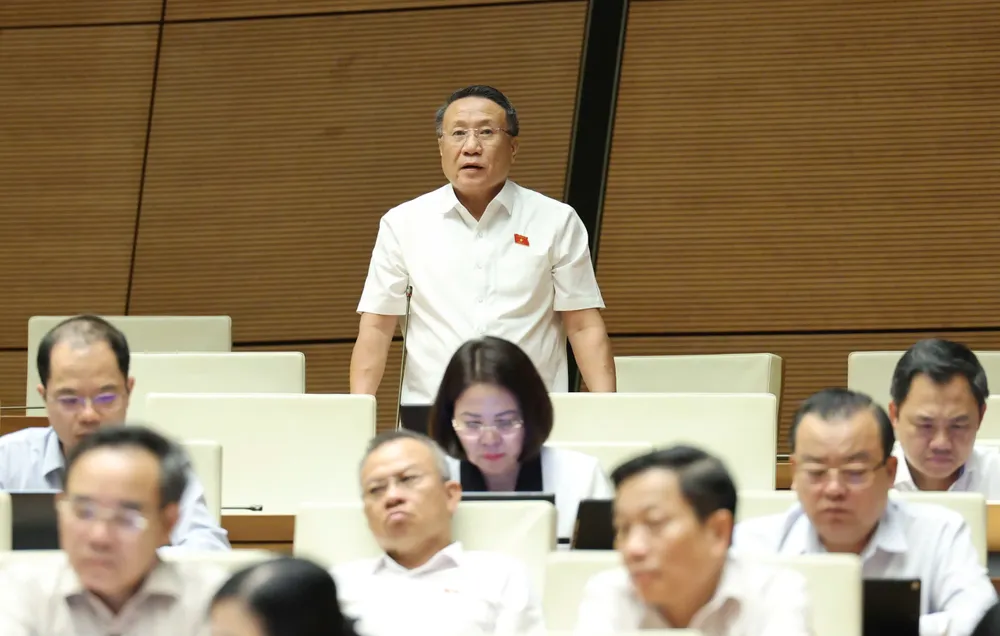
Delegate Nguyen Thi Hong Hanh (HCMC) is interested in the urban government organization model. After July 1, 2025, according to the Capital Law and resolutions of the National Assembly, the urban government organization model in Hanoi, HCMC and Da Nang will not be unified.
Accordingly, Hanoi has ward People's Councils, Ho Chi Minh City and Da Nang do not have ward People's Councils. At the same time, when merging Ba Ria - Vung Tau and Binh Duong with Ho Chi Minh City, the wards of Binh Duong and Ba Ria - Vung Tau all have ward People's Councils, which means there will be inconsistency with the local government model of wards right in a provincial-level administrative unit, the new Ho Chi Minh City.
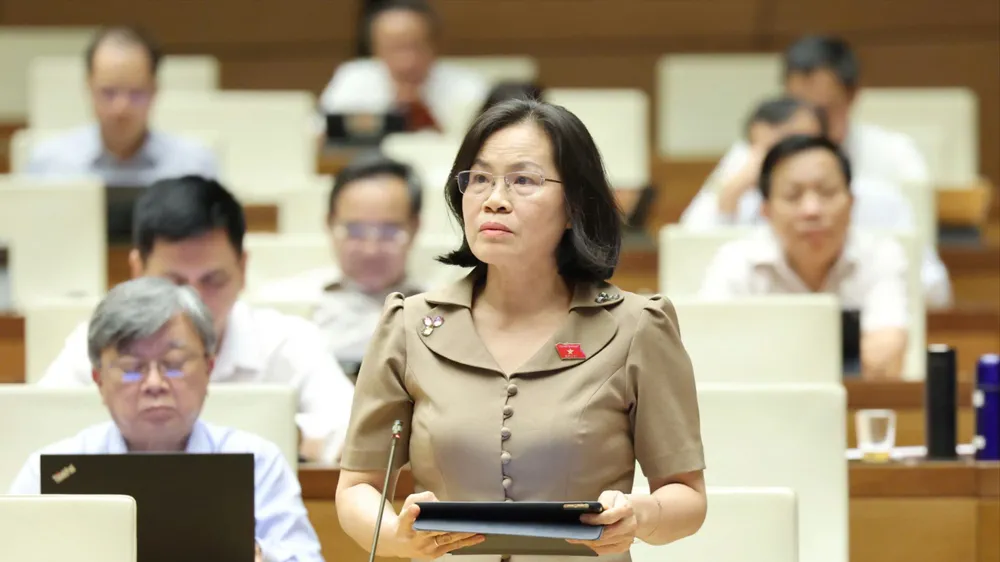
Therefore, to ensure the unity of the local government model at the commune level in general and the local government model of Hanoi, Ho Chi Minh City and Da Nang City, especially the unity of the local government model in the wards of the new Ho Chi Minh City, Deputy Nguyen Thi Hong Hanh proposed that the National Assembly consider allowing the new Ho Chi Minh City from July 1, 2025, the local government model of wards with People's Councils of wards, or the model of temporary People's Councils of wards; at the same time, review and supplement the draft Law on Organization of Local Government to ensure the unity of the legal system.
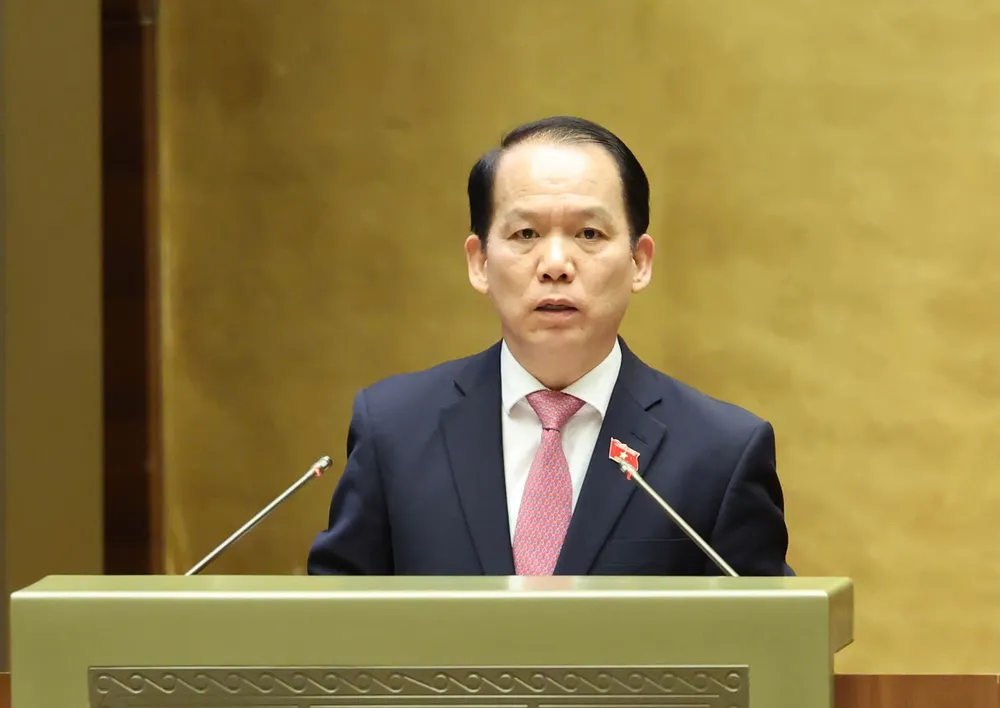
Explaining the opinions of the deputies, Chairman of the National Assembly's Committee on Law and Justice Hoang Thanh Tung said that some deputies supported the general regulation plan as in the draft, while others suggested that administrative units below the province should have specific regulations for communes and wards.
According to him, the draft provides general regulations so that requirements can be met during the development process.
"We can have a new type of administrative unit (not adding another level of administrative unit, still within the commune-level administrative unit, but can add some other form), then it will be regulated in the Law on Organization of Local Government, not regulated in the Constitution. The Constitution provides general regulations to ensure the stability of the Constitution. This is also experience from practice", said Chairman of the National Assembly's Committee on Law and Justice Hoang Thanh Tung.
Source: https://www.sggp.org.vn/dai-bieu-quoc-hoi-can-nhac-cho-phep-tphcm-moi-co-hdnd-phuong-post799354.html














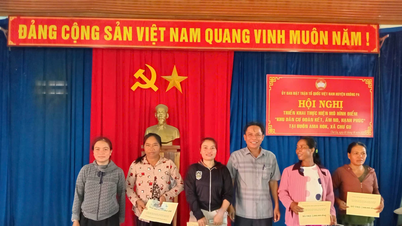

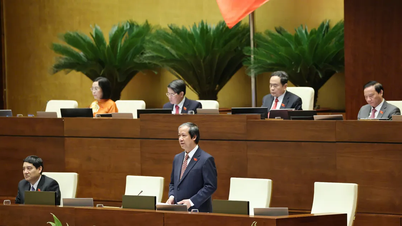








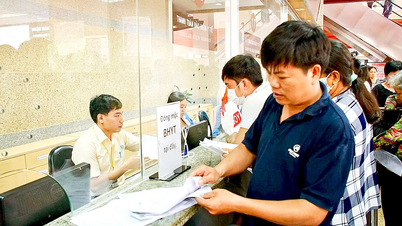

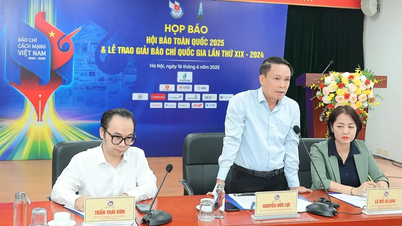






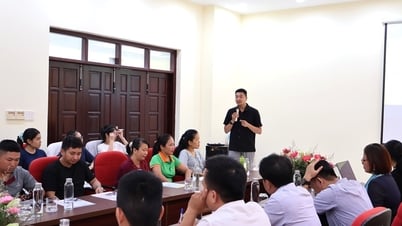
















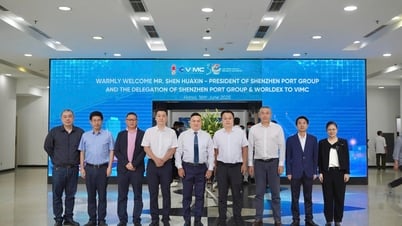

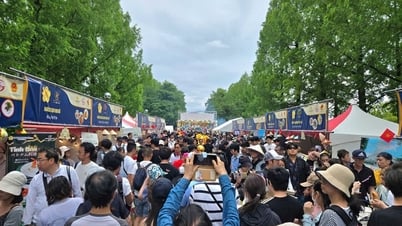


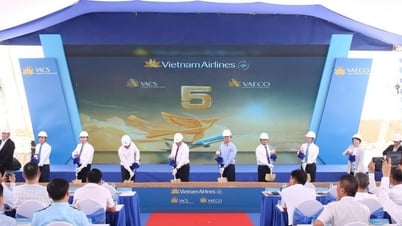

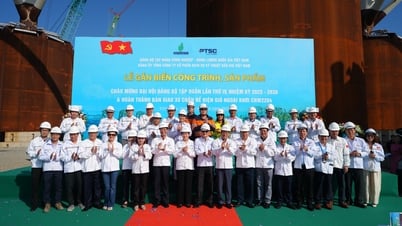

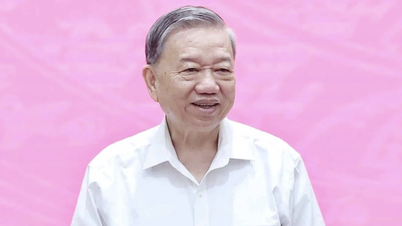
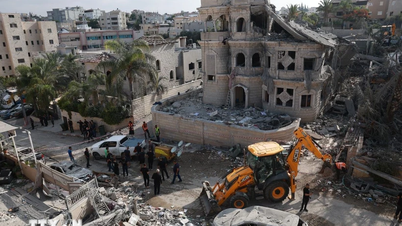


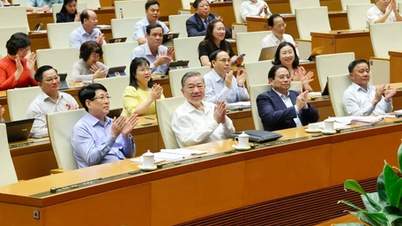


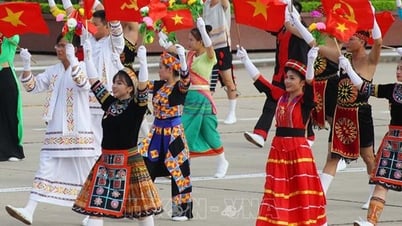


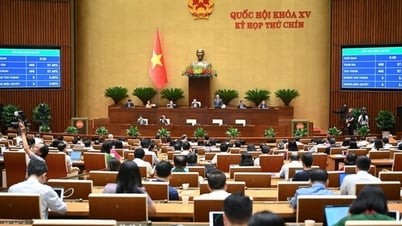

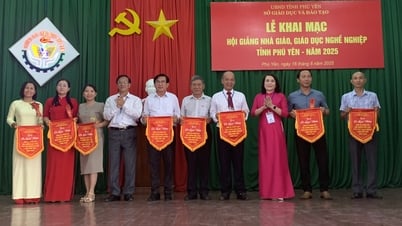






















Comment (0)